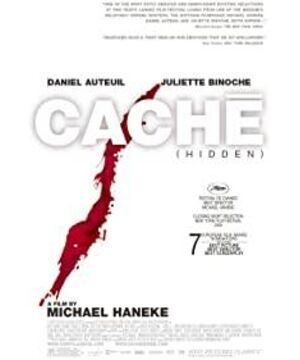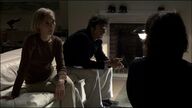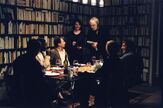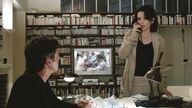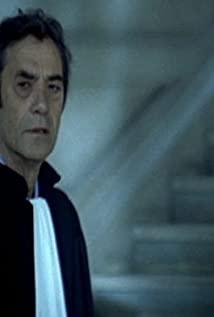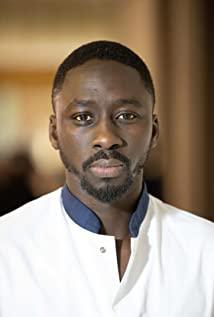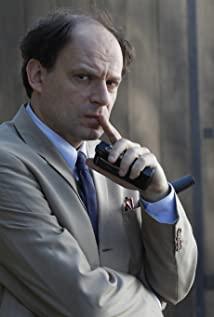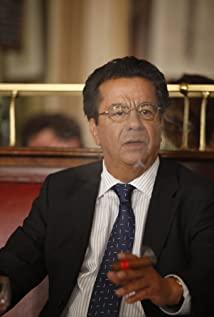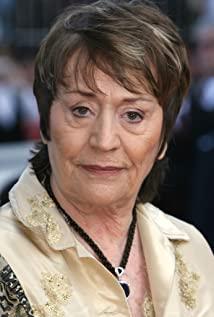The hidden camera that runs through the beginning and the end in [Cache] caused panic in a family and a continuation of the shadow. Its purpose was achieved, as Georges himself told his wife in that quarrel. And Haneke, who was silent outside the monitor, achieved his goal as a director.
Regarding family, the director's first two German works, [The Seventh Continent] and [Benny's Video] are centered on this. In fact, his films are more than similar themes. If the director was younger at that time, [Seventh Continent] may become a more stunning debut. But the extraordinary calmness embodied in it, Haneke, who was nearly 50 years old, expressed it in his own way. When it comes to [Benny's video], it is still a story that allows people to witness the beginning and the end, but it is by no means easy to let go of. In this [Cache] more than ten years later, we see the director's unrelenting edge and a more stable attitude.
With a family of three as the center, [Seventh Continent] is heading towards self-destruction, [Benny's video] becomes numb and finally deadlocked, and [Cache] digs into the deep fear. Haneke's shots stop at the record and have never been involved. He is not a talker but a silent one at all.
The hidden meaning presented in a closed realm in [Cache] impressed me deeply. Georges and Anne, trapped by the unknown videotape, sat in the car and said nothing. The frozen gaze of Majid's son in the ascending elevator, and the avoidance of Georges's gaze in the glass mirror. There was also the shock and panic that Georges turned his back to the camera before the bloody light.
The movie has too much to say about hiding.
Hidden crisis. In fact, we should have seen it in the middle of the movie. The hidden crisis does not come from the camera that was not revealed in the end, but the inner face of a family shown by it. Anne doesn't seem to have much to do in the movie. She is the bearer of the videotape crisis, except that she only acts as the injured mother when her son is not home. But she is precisely the center of this family crisis that is gradually being revealed. Before Georges, she shook out the uneasy facts to her friends. When her husband concealed something from her, she immediately expressed gaffeful dissatisfaction. From the point-to-stop hint of the film, we can see the possibility of her having an affair. It’s just that we preceded the questioning, seeing her humbly resting when Georges had a dispute with black people, and seeing her saying in front of the videotape of Georges and Majid dialogue: I think he is innocent.
Hidden prejudice. This is the unanimous point in the eyes of those who have watched the film. Let’s start with a piece of television news inserted in the film. When the couple began to worry about their son’s safety, the uneasy television pictures showed the national unrest on the other side of the world. Such images are familiar in Haneke's movies, at least in [Unknown Password] when Binoche is ironing at home. In the film, Georges is in direct conflict with Majid, an Algerian who was adopted by his parents in childhood, and his son. There was a hint of a black man who had a dispute with him as an auxiliary. Little is known about the turbulent history of the 1960s and the inherent attitudes of the Western world, so I won't say much here. But I believe that the political connotation of [Cache] is by no means everything. At least Hanek himself said: the film has nothing to do with politics.
Hidden angle. This is inspired by watching other people's film reviews. Majid's resolute self-suffering shocked not only Georges, but also us outside the lens. In fact, what is still incomprehensible is that after so many years of peaceful life, why did he choose to face such a non-fatal incident. I suddenly realized that the whole movie turned out to be from Georges' point of view. We understand his fears and experience his childhood experience, and we have sympathy for him, or at least the same. We don't know whether the childhood incidents between him and Majid really fit that kind of understatement, let alone the forty years before Majid opened the door in a room at the end of the corridor. His life ended too suddenly, in fact, his past was also erased too simply.
Some people think that Georges finally committed suicide. I watched the movie twice and didn't expect it at all. From the perspective of this point of view, the two pills he swallowed (what kind of reason makes people believe that they are fatal?), and finally fell asleep alone in the room with the curtains (why not just take them as Another hint of "hidden"?), and the then vision that seems to appear abruptly thereafter (just as an end?). It is indeed worth chewing.
But is there any reason for me to believe that Haneke will not end like that.
View more about Caché (Hidden) reviews


